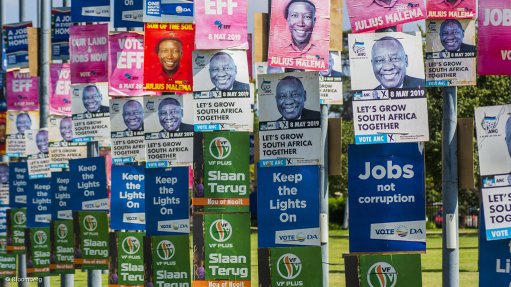
The Indlulmithi South Africa Scenarios cross-sector initiative highlighted on Friday that it expects that by 2035 political parties will have a real commitment to cooperation, across the board.
The 2035 Indlulamithi South Africa Scenarios report, which is scheduled to be launched in October, suggests that by the 2029 elections, South Africa will be ruled by a coalition government.
It noted that, provincially, there is lot of racial and ethnic identity issues that have loomed large in election campaigning.
Established in 2018, the Indlulamithi South Africa Scenarios aims to identify potential paths open to South Africa for a more socially cohesive country and comprises three visions of South Africa’s future: An enclave bourgeois nation, a nation in step with itself and a floundering false dawn.
The current scenarios consider three key drivers impacting on South Africa’s future: a low economic growth trap, State capability and weakening sovereignty and internal security.
Presenting the Indlulamithi Scenarios 2035 at the Press Council of South Africa in Johannesburg, journalist and author Fred Khumalo noted that political parties want to build the country together.
He said the scenario suggests that coalition governments are principled in terms of how they should work together, putting the interest of the nation first, adding that in this scenario the younger generation is also working tirelessly to forge alliances to create new opportunities.
The scenario suggest that resources now go to young people to boost the voting base for a coalition.
Khumalo envisioned that after the 2034 elections the populist coalition that took power into 2029 now has a more decisive mandate. He said that is a useful coalition which will ideally be around for a very long time.
He highlighted that the coalition of 2035 would shut down democratic space, which includes media and civil society.
The scenario noted that the country’s courts are overwhelmed, also driven with corruption. Unemployment is declining compared to what the country was experiencing in 2023/2024.
“Urbanisation and rural immigration have slowed down due to the uptick in investments in agricultural and touristic sectors,” the scenario said.
Khumalo explained that, according to the scenario, the 2034 elections were highly contested, and was a bit more focused and more optimistic compared to what would have been witnessed ten years ago (2024-2029).
He said that smaller parties are surprised to see their share of vote reducing in 2034, noting that this is explained because the bigger parties have “come to their senses” and are working together in terms of putting the interest of the nation first.
“In 2030 that coalition which was in power by then has enlarged the ministry of higher education, so basically the picture is that young educated people who are being favoured in order to create opportunities,” highlighted the scenario.
The 2035 scenario also suggests that State capture of about fifteen years ago will return, however much worse than it was before.
Entering this phase of the project, the team engaged with leaders and experts from different sectors to identify key long-term concerns about South Africa up to 2035.
“Our key focus on social cohesion has not change, however, our intention going forward is that the Indlulamithi scenarios support South Africa in recovering from the current crisis – and support the reconstruction to build a more inclusive economy,” said Indlulamithi SA Scenarios executive committee member Xolelwa Kashe-Katiya .
Almost 150 South Africans from a wide variety of backgrounds have been involved in the process thus far.
Twenty-six variables have been identified after scores of interviews, several focus group discussions, roundtables and on the basis of many research papers.